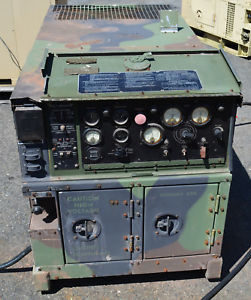Foot Warmers
 Let’s think about this for a second.
Let’s think about this for a second.
Speaking about HF (10-160m), if conditions are poor and you need to be “legal limit”, 1500w PEP to hit Japan, there’s a really good chance that the station in Japan will probably need to be at, near or above 1500w PEP to get back to you (some rare cases this may not be the case).
A different consideration: If a station in Europe is calling DX, running 1500w PEP and you make a contact with them and you’re running 1500w PEP and your buddy in another state is running 100w PEP and makes contact with the Euro station as well, did you really need the 1500w? (Maybe, if your antenna system sucks, which happens A LOT in amateur radio).
US Amateur Transmitter Power Limits
At all times, transmitter power must be the minimum necessary to carry out the desired communications. Unless otherwise noted, the maximum power output is 1500 watts PEP. Novice/Technicians are limited to 200 watts PEP on HF bands. Geographical power restrictions apply to the 630 meter, 70 centimeter, 33 centimeter and 23 centimeter bands.
Here’s yet another scenario: You’re rag-chewing on 80m at night with friends within 400 miles. You’re running 1500w PEP and you have invested thousands of dollars into a antenna system. Your buddy is running 100w and is able to be heard and have a conversation with most, if not all of the other stations, he’s running a di-pole at about 10ft off the ground (NVIS). Does he sound as good as you? Probably not. Is he able to carry out a conversation? Yes. Who is doing what’s right? He is. He’s able to have a conversation with the intended parties within the scope of the FCC Rules governing the amateur service. You are exceeding the limit by not reducing power to the necessary amount to carry out a conversation. The same holds true if there’s a QRP station near you that can contact those other stations as well. Did you try to run lower power? Decrease from 100w to 25w, down to 5w? Who then, is doing what’s right? The QRP station.
Power isn’t everything. Power, like many things in life, is compensation for other things. In most cases, power will compensate for a poorly designed antenna system. Power will compensate for poor operator skills.
Learn to do things right and you can spend the money intended for a big, high-dollar amplifier on things that matter, like good antennas, good feedline, that headset you’ve been wanting, another rig, another tuner. Amplifiers have their place, I am not against amplifiers, I am against using amplifiers when they’re not needed. Why do you want stations that cannot contact you back, to be able to hear you? Conditions are key, antenna systems are the next thing that matters. Much further down the list is the power you’re putting out. If you can’t hear a station, you cannot have a QSO with that station.





